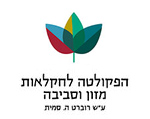Date: 12.6.2022
Speaker: Prof. Shoham Choshen-Hillel
Bio: I am a professor at the School of business administration and the Federmann Center for the Study of Rationality, at the Hebrew University of Jerusalem. I received all my degrees from the Hebrew University, with a PhD in social psychology. I then pursued a post doc at Booth School of Business, University of Chicago (where I will also spend a sabbatical very soon). I study decision making, with a focus on social decision making –decisions that people make and affect not only their own outcomes, but also other people’s outcomes. My main lines of research investigate resource allocation decisions (fairness and inequity aversion), ethical decisions and dishonest behavior, and empathy and prosocial decisions.
Subject: A wake up call: The effect of nightshifts on physicians' empathy and decision making (Choshen-Hillel et al., in press, PNAS)
Abstract: Adequate pain management is one of the biggest challenges of the modern healthcare system. Physician perception of patient subjective pain, which is crucial to pain management, is susceptible to a host of potential biases. Here we explore the timing of physicians’ work as a previously unrecognized source of systematic bias in pain management. We hypothesized that during nightshifts, sleep deprivation, fatigue, and stress would reduce physicians’ empathy for others’ pain, leading to under-prescription of analgesics for patient pain relief. In Study 1, 67 resident physicians, either following a nightshift or not, performed empathy for pain assessment tasks and simulated patient scenarios in laboratory conditions. As predicted, following a nightshift, physicians showed reduced empathy for pain. In Study 2, we explored this phenomenon in medical decisions in the field. We analyzed three emergency department datasets from Israel and the US that included discharge notes of patients arriving with pain complaints during 2013-2020 (N=13,482). Across all data sets, physicians were less likely to prescribe an analgesic during nightshifts (compared to daytime shifts) and prescribed fewer analgesics than recommended by the World Health Organization. This effect remained significant after adjusting for patient, physician, and emergency department characteristics. Under-prescription for pain during nightshifts was particularly prominent for opioids. We conclude that nightshift work is an important and previously unrecognized source of bias in pain management, likely stemming from impaired perception of pain. We consider the implications for the ongoing debate regarding how to optimize physician training and working schedules, as well as the general implications for organizations employing nightshifts.
The online meeting will be held on Sunday,May 12nd , 2022 at 13:15.
Join Zoom Meeting https://huji.zoom.us/j/81270968023?pwd=bmpmMXFOZmR5UkpoL0tQZkoyNGhudz09 Meeting ID: 812 7096 8023 Passcode: 957962

